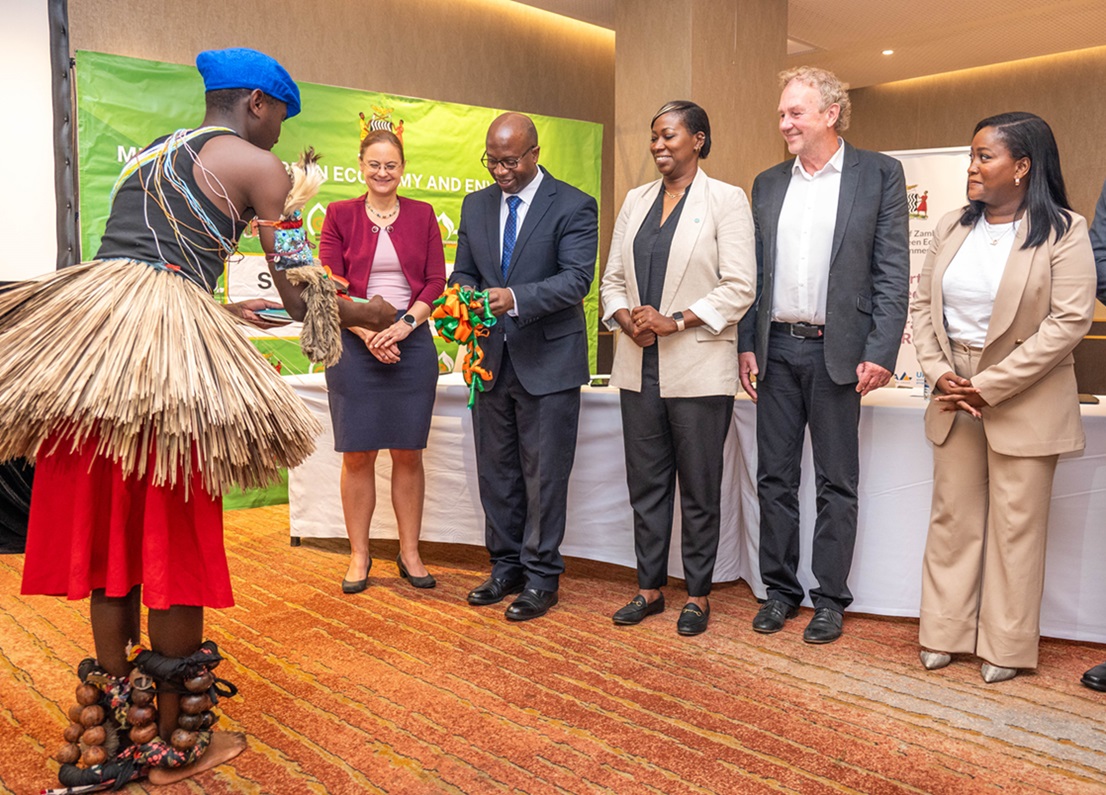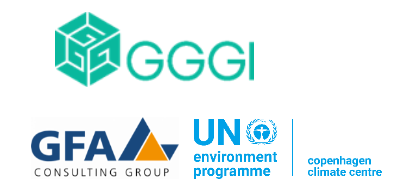
FOR IMMEDIATE RELEASE
WITH PICTURES
SPAR6C Committed to Zambia’s Greener Future
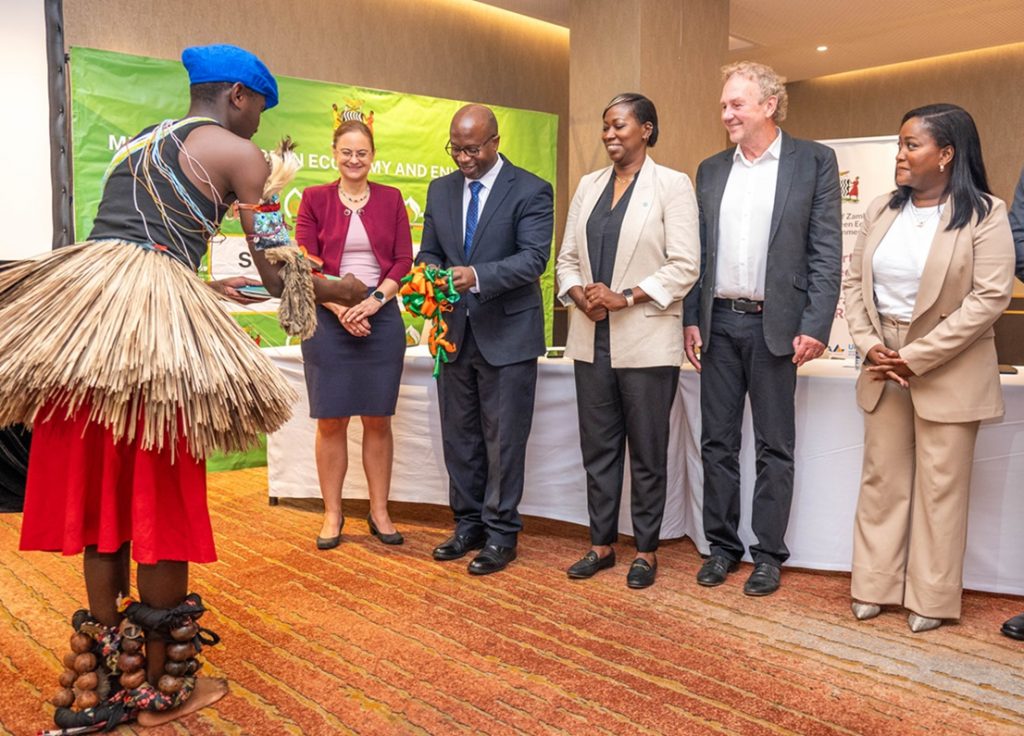
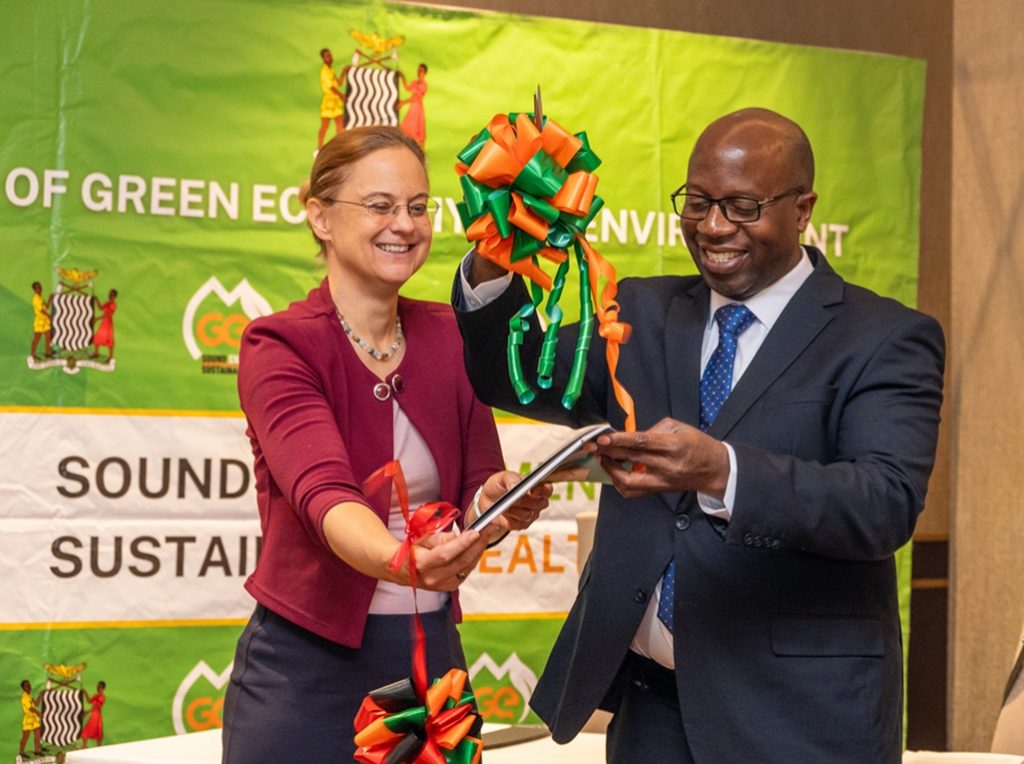
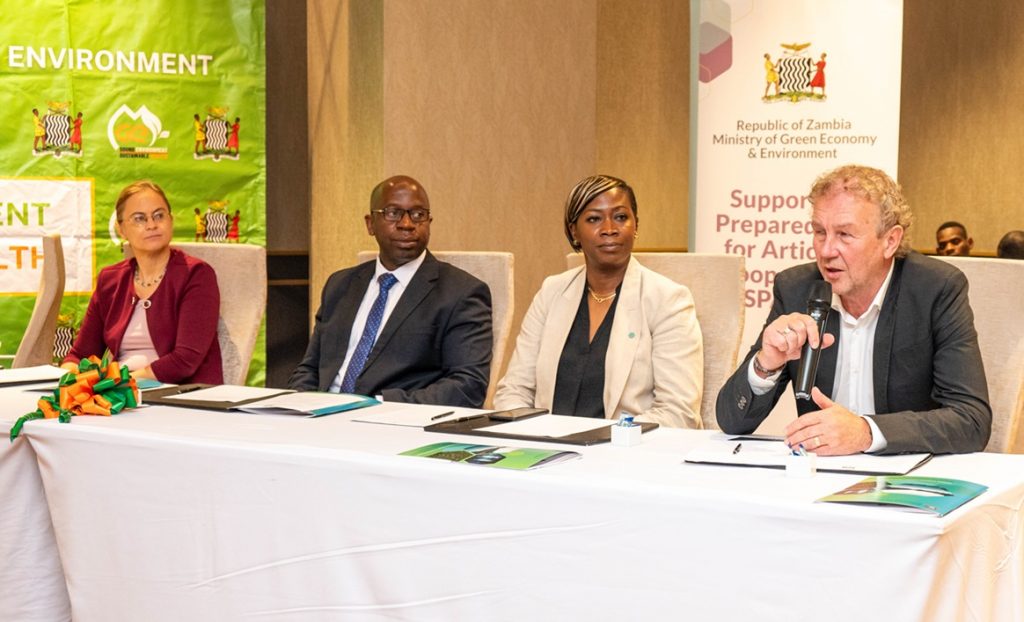
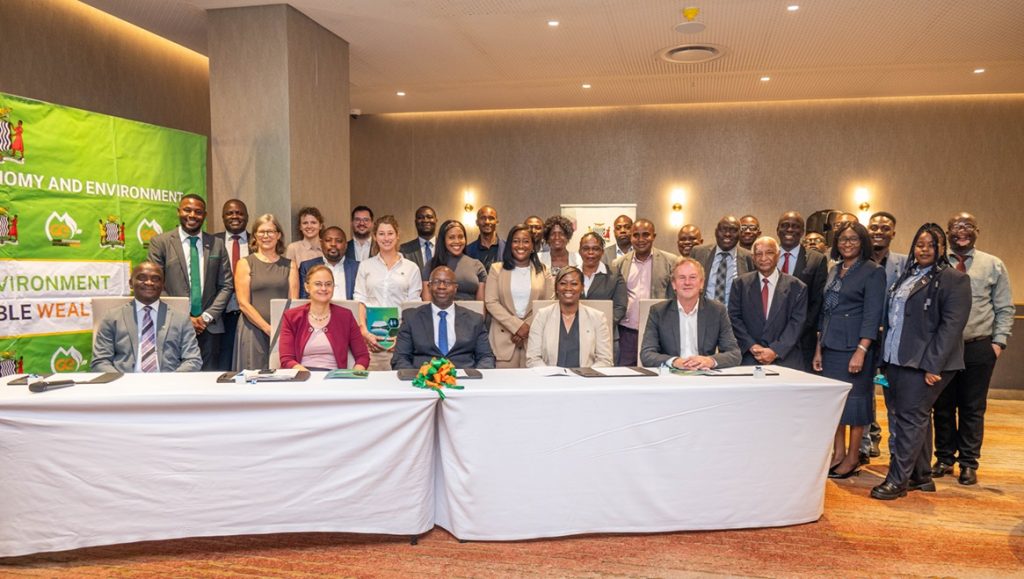
Lusaka, October 25, 2023 – The Supporting Preparedness for Article 6 Cooperation (SPAR6C) program has expressed confidence in Zambia achieving a greener future with the recent approval of the strengthened Guidelines for the Submission and Evaluation of Mitigation Activities Under Article 6 by the guidance of the Ministry of Green Economy and Environment (MGEE).
As the first country in the SPAR6C program to adopt the Eligibility Criteria, Zambia has not only strengthened its position on the international carbon trading but also set a precedent for Africa and the region, serving as a model of the effectiveness of the program in guiding nations toward their own carbon market readiness.
The country hopes to leverage green investment opportunities and stakeholder partnerships within the international carbon markets to help accelerate the achievement of its Nationally Determined Contributions (NDCs) targets and increase the country’s mitigation ambition.
In June 2023 Zambia officially became a member of the Global Green Growth Institute (GGGI), a treaty-based, international inter-governmental organisation that supports and promotes strong, inclusive and sustainable economic growth in developing countries and emerging economies.
The SPAR6C program in Zambia is funded by the German government and spearheaded by the Global Green Growth Institute (GGGI) in collaboration with consortium partners GFA Consulting and the UN Environment Programme Copenhagen Climate Centre (UNEP CCC). It supports stakeholders in Zambia, Colombia, Pakistan and Thailand to engage in carbon transactions under Article 6 of the Paris Agreement. SPAR6C provides decision support to government counterparts, capacity building for private sector and technical assistance to identify and prepare potential mitigation activities.
One of SPAR6C’s mandates is to support member countries with capacity building and knowledge sharing. Over the next four years SPAR6C will undertake the following in Zambia:
- Support for the implementation of the National monitoring and verification system (iMRV).
- Medium to long-term emission planning that includes sector baseline studies, training programs, awareness campaigns in collaboration with government, private sector and civil sector players.
- Develop A6 opportunities as examples of the effectiveness of the framework.
- Establish a Community of Practice platform for climate mitigation and A6 research and knowledge sharing amongst government, private and civil entities (CoP-ASIC).
Zambia’s landscape, with approximately 60% forest coverage, holds significant potential for green growth. The Country’s transition to a more diversified approach to carbon credits, including projects in water and land management, as well as renewable energy, signifies its strong commitment to sustainable development.
Government aims to catalyse private sector mitigation activities by clarifying key components of the decision-making process and promote a carbon market that is transparent, transformational and inclusive. It is also in the process of formulating a comprehensive Carbon Market Framework.
Synergistic engagement, collaboration and partnerships between governments and both public and private stakeholders are key in achieving truly sustainable green growth and a functioning green economy.
The Paris Agreement, signed by 197 countries in 2015, represents a historic global effort to combat climate change by limiting global warming to well below 2 degrees Celsius above pre-industrial levels. Article 6 of the agreement is the cornerstone for international cooperation, fostering global carbon market mechanisms that enable countries to reduce greenhouse gas emissions while fostering sustainable development. The implementation of the Article 6 framework is vital in advancing climate action, and Zambia is setting an example by advancing Article 6 governance with clear eligibility criteria and an efficient approval process—an inspiring model for regional climate action.
The strengthened Guidelines were launched on October 17th 2023 in Lusaka.
Highlights from key speakers at the launch
Hon. Eng. Collins Nzovu MP, Minister of Green Economy and Environment:
“The implementation of the Article 6 framework is vital in advancing climate action, and Zambia has set an example in Africa by advancing article 6 governance with clear eligibility criteria and an efficient approval process—an inspiring model for regional climate action.
With such interventions in place, we hope to see real transformational change in our systems, with outcomes that advocate for and promote zero-carbon practices and digitalisation among others.
The key is sustainable development that will not only protect and preserve our environment but also help to restore it by employing the resources, technology and knowledge at our disposal through the various participating countries.”
H.E Anne Wagner Mitchell, German Ambassador to Zambia:
“Zambia is the only African country among the four country partners to the program selected for this international cooperation program. One reason for this has been the government’s progressive climate policy and its interest to cooperate internationally within the framework of Article 6 of the Paris Agreement. In close cooperation with the Ministry of Green Economy and Environment and other institutions such as the Zambia Environmental Management Agency, the SPAR6C program supports the Zambian government in establishing the required structures and regulatory framework for accessing the global carbon market.”
Angela Nantulya Heinonen, Zambia Country Lead for the Global Green Growth Institute:
“Having guidelines in place ensure that the Government of Zambia has a clear and predictable process and criteria for making decisions on authorizing the transfer of credits. It both empowers the government to ensure that transactions bring the maximum green growth benefits to Zambia and Zambian communities, while at the same time providing the private sector the clarity and assurance it needs to begin developing and investing in mitigation projects.”
-Ends-

About the Global Green Growth Institute (GGGI)
The Global Green Growth Institute (GGGI) is a treaty-based international, inter-governmental organisation dedicated to supporting and promoting strong, inclusive, and sustainable economic growth. GGGI supports its 47 Member States’ transition into a low-carbon green economy. GGGI provides policy advice and technical support in the development of green growth plans, policies and regulations, and mobilisation of green investments.
www.gggi.org
About Supporting Preparedness for Article 6 Cooperation (SPAR6C)
SPAR6C is a five-year funded by the German Federal Ministry for Economic Affairs and Climate Action (BMWK), through the German government’s International Climate Initiative (IKI). The programme supports stakeholders in Colombia, Pakistan, Thailand, and Zambia to become prepared to engage in carbon transactions under Article 6 of the Paris Agreement.
SPAR6C provides decision support to government counterparts, capacity building for private sector and technical assistance to identify and prepare potential mitigation activities. In Zambia it works with the GFA Consulting Group and the UN Environment Program Copenhagen Climate Centre, led by GGGI.
For media inquiries please contact:
Gillian Langmead
Langmead & Baker Ltd
info@langmead.com
+260 979060705

